| | |||||||||||||
| |||||||||||||
| |||||||||||||
| |||||||||||||
The Green Party of Aotearoa New Zealand female co-leadership election, 2018 is an election that took place between 26 March and 7 April 2018 to determine the future leadership of the Green Party of Aotearoa New Zealand.
| | |||||||||||||
| |||||||||||||
| |||||||||||||
| |||||||||||||
The Green Party of Aotearoa New Zealand female co-leadership election, 2018 is an election that took place between 26 March and 7 April 2018 to determine the future leadership of the Green Party of Aotearoa New Zealand.
On 9 August 2017, Metiria Turei announced she had stood down as co-leader of the Green Party following media scrutiny of her public admission to committing benefit fraud in the early 1990s, stating that the "scrutiny on [her] family has become unbearable." [1] This triggered an election to fill the now vacant female co-leadership, which the party had previously stated would be conducted at the 2018 party annual general meeting. [2] It had been possible that a Special General Meeting or postal ballot may have been used to elect a new co-leader earlier. [3]
On 26 January 2018, James Shaw announced the election timeline to determine the next female co-leader, with the ballots to be counted and a winner to be announced on 8 April 2018. [4] Following the election, Marama Davidson was elected the new female co-leader of the Green Party. [5]

The following individuals announced their candidacy:
| Name | Position | Notes |
|---|---|---|
 Marama Davidson | List MP since 2015 | Davidson held a Facebook event on 4 February for an "announcement", but would not tell the press what the topic would be. Media had hypothesized the event as being a candidacy declaration. [7] On the same day, Davidson announced her candidacy for co-leader. [8] |
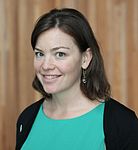 Julie Anne Genter | List MP since 2011
| Genter had been described as one of the top contenders to take over as co-leader, but hadn't yet commented on any leadership aspirations. [10] Following Turei's resignation, Genter said she was still to make a decision on her candidacy, but might do so when dates were finalised. [3] She announced her candidacy on 8 February. [11] |
The following individuals were speculated as being possible leadership candidates, but ruled out a bid:
Ghahraman, elected as a List MP in 2017 (following special votes being cast) said to media she was "not at all" interested in the position of co-leader. [12]
A List MP since 2011 and Under-Secretary for Justice since 2017, Jan Logie did not respond to media requests for comment regarding the co-leadership. [3] The press speculated that after Davidson announced her candidacy Logie ruled out running herself. [7]
Former Green Party Chief of Staff Deborah Morris-Travers, who was replaced following Turei's admission to benefit fraud due to her involvement, [13] ruled out a bid for the co-leadership herself. [8]
Former Green List MP (2011–17) and Auckland City Councillor (2007–10) Denise Roche ruled herself out of standing. [8]
Sage, a List MP since 2011 and since 2017 Minister of Conservation and Minister for Land Information as well as a member of the Green Party's negotiation team with Labour, said she had not yet made any decision; "I'm still getting my feet under the table as a minister." [3] There had been widespread speculation that Sage would put her hand up as a "compromise candidate". Ultimately, she ruled out standing citing a desire to focus on her ministerial duties instead. [14]
Elected as a List MP in 2017, Chlöe Swarbrick declined to stand stating it was "too early" in her career to be co-leader. [15]
On 1 March a live-streamed debate between Davidson and Genter was held in the Legislative Council Chambers, Wellington hosted by Henry Cooke. [16] Davidson and Genter again met in a debate hosted by Lisa Owen on Newshub Nation on 10 March, [17] and in another hosted by Mihingarangi Forbes on The Hui on 11 March. [18]
The voting was conducted by delegates from electorates across the country. The following table gives the ballot results: [19]
| Candidate | Votes | % | |
|---|---|---|---|
| Marama Davidson | 110 | 76.38 | |
| Julie Anne Genter | 34 | 23.62 | |
| Majority | 76 | 52.77 | |
| Turnout | 144 | — | |
The Green Party of Aotearoa New Zealand, commonly known as Green or the Greens, is a green and left-wing political party in New Zealand. Like many green parties around the world, it has four pillars. The party's ideology combines environmentalism with left-wing and social-democratic economic policies, including well-funded and locally controlled public services within the confines of a steady-state economy. Internationally, it is affiliated with the Global Greens.

Metiria Leanne Agnes Stanton Turei is a New Zealand academic and former politician. She was a Member of Parliament from 2002 to 2017 and the female co-leader of the Green Party of Aotearoa New Zealand from 2009 to 2017. Turei resigned from the co-leader position on 9 August 2017 amid a political controversy arising from her admission to lying to the Ministry of Social Development to receive higher payments when she was on the Domestic Purposes Benefit and later, to being enrolled to vote in an electorate where she was not eligible when she was 23.
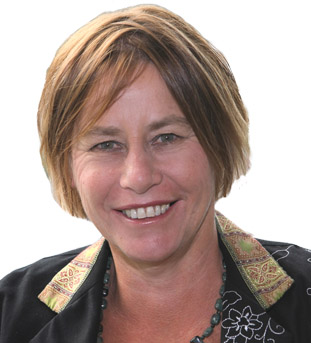
Sue Bradford is a New Zealand activist, academic, and former New Zealand politician who served as a list Member of Parliament representing the Green Party from 1999 to 2009.

Deborah Morris-Travers is a former New Zealand politician. She was a list MP for New Zealand First from 1996 to 1998.

The use of cannabis in New Zealand is regulated by the Misuse of Drugs Act 1975, which makes unauthorised possession of any amount of cannabis a crime. Cannabis is the fourth-most widely used recreational drug in New Zealand, after caffeine, alcohol and tobacco, and the most widely used illicit drug. In 2001 a household survey revealed that 13.4% of New Zealanders aged 15–64 used cannabis. This ranked as the ninth-highest cannabis consumption level in the world.

David James Clendon is a New Zealand former politician. He was a list Member of Parliament in the New Zealand House of Representatives for the Green Party of Aotearoa New Zealand from 2009 until 2017. He later served one term on the Far North District Council from 2019 to 2022.
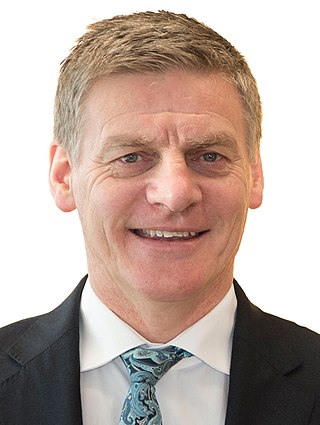
The 2017 New Zealand general election took place on Saturday 23 September 2017 to determine the membership of the 52nd New Zealand Parliament. The previous parliament was elected on 20 September 2014 and was officially dissolved on 22 August 2017. Voters elected 120 members to the House of Representatives under New Zealand's mixed-member proportional (MMP) voting system, a proportional representation system in which 71 members were elected from single-member electorates and 49 members were elected from closed party lists. Around 3.57 million people were registered to vote in the election, with 2.63 million (79.8%) turning out. Advance voting proved popular, with 1.24 million votes cast before election day, more than the previous two elections combined.

James Peter Edward Shaw is a New Zealand politician. He has been a member of parliament since 2014 and a co-leader of the Green Party of Aotearoa New Zealand from 2015 to 2024.
Various organisations commissioned opinion polls for the 2017 New Zealand general election during the term of the 51st New Zealand Parliament (2014–2017). Roy Morgan Research polled monthly, with MediaWorks New Zealand and Television New Zealand polling less frequently. The last The New Zealand Herald was in December 2015, and Fairfax Media discontinued their poll after the 2014 election. The sample size, margin of error and confidence interval of each poll varied by organisation and date, but were typically 800–1000 participants with a margin of error of just over 3%.
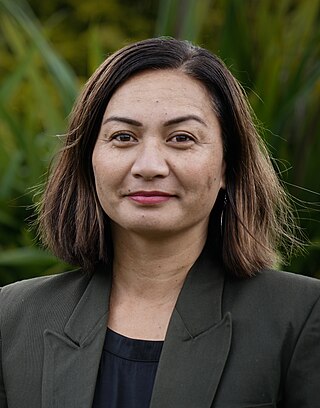
Marama Mere-Ana Davidson is a New Zealand politician who entered the New Zealand Parliament in 2015 as a list-member representing the Green Party of Aotearoa New Zealand, of which she became the female co-leader in 2018.
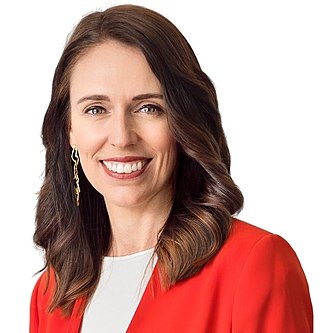
The 2020 New Zealand general election was held on Saturday 17 October 2020 to determine the composition of the 53rd New Zealand Parliament. Voters elected 120 members to the House of Representatives, 72 from single-member electorates and 48 from closed party lists. Two referendums, one on the personal use of cannabis and one on euthanasia, were also held on the same day. Official results of the election and referendums were released on 6 November.

The Green Party of Aotearoa New Zealand male co-leadership election, 2015 was held to determine the future leadership of the Green Party of Aotearoa New Zealand. The election was won on the first ballot by first term List MP James Shaw.

Chlöe Charlotte Swarbrick is a New Zealand politician. Following a high-profile but unsuccessful run for the 2016 Auckland mayoral election, she became a parliamentary candidate for the Green Party of Aotearoa New Zealand, standing in the 2017 New Zealand general election and was elected as a member of the New Zealand Parliament at the age of 23. In the 2020 election, Swarbrick was elected as the Member of Parliament for Auckland Central, becoming the second Green Party MP ever to win an electorate seat, and the first without a tacit endorsement from a major party leader. She retained Auckland Central in the 2023 election. In March 2024, she was elected co-leader of the Green Party.

Golriz Ghahraman is a New Zealand politician, lawyer and writer. The former United Nations lawyer was a child asylum seeker, and became the first refugee elected to New Zealand's Parliament. Ghahraman was a member of the New Zealand House of Representatives for the Green Party from 2017 to 2024, when she resigned amid shoplifting allegations.

The 52nd New Zealand Parliament was a meeting of the legislature in New Zealand, which opened on 7 November 2017 following the 2017 general election and dissolved on 6 September 2020. The New Zealand Parliament comprises the Sovereign and the House of Representatives, which consists of 120 members.
The Teal Deal is a hypothetical blue–green political alliance between the Green Party of Aotearoa New Zealand and the New Zealand National Party. The term Teal Deal is a reference to the medium blue-green colour teal, which combines the political colours that represent the two parties.
The 2021 Green Party of Aotearoa New Zealand male co-leadership election was held to determine the future leadership of the Green Party of Aotearoa New Zealand. The election was won on the first ballot by incumbent co-leader and List MP, James Shaw.
The 2022 Green Party of Aotearoa New Zealand co-leadership election was held from July to September. Marama Davidson and James Shaw, the incumbent co-leaders of the Green Party of Aotearoa New Zealand, were re-elected. However, the election for Shaw's position went to a second round. Shaw did not secure a 75 per cent supermajority of party delegates to be re-elected for another year at the party's annual general meeting (AGM) on 23 July, and nominations were reopened. Prior to the AGM, members of the Young Greens had expressed disappointment in Shaw's leadership, particularly in his ministerial portfolios. Davidson served as the sole co-leader until a second election was held.

The co-leaders of the Green Party of Aotearoa New Zealand are the dual highest-ranking members of the Green Party caucus, chosen by the party membership to represent the party. The current co-leaders are Marama Davidson and Chlöe Swarbrick.